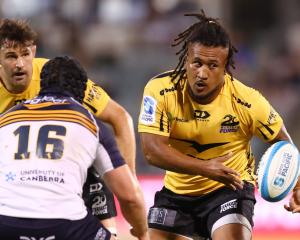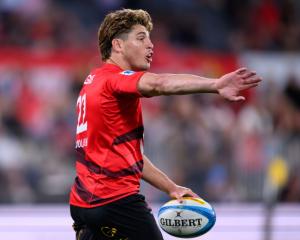The Junior World Championship kicks off in Auckland on Monday. Rugby writer Steve Hepburn looks at the competition, and picks the likely contenders.
The breeding ground. The nursery. The pathway to test rugby.
The Junior World Championship has been running since 2008 and has provided more than 300 test players since it started.
Lots of people rave about the ability of the tournament to help breed the next crop of internationals.
But when you have more than 2000 players competing over six years the law of averages suggests that some of them are going to make the next step up.
If they don't, then someone is not doing their job properly.
The New Zealand side won the first four tournaments and in those teams were the likes of Julian Savea, Beauden Barrett and Aaron Cruden.
But for every Cruden there is a Leighton Price, Shahn Eru or Paul Ngauamo.
Whoever takes the field for the top sides will not lack resources.
Unions like South Africa, England and France do not mind spending some coin, and plenty of it, to get the sides as best as they can be for the tournament.
South Africa has been in camp for a month and most of England's players are paid professionals.
New Zealand made the final in 2012 but lost to South Africa, while last year was a disappointment, as New Zealand went down in England in the semifinal and eventually finished fourth.
New Zealand had a policy of just picking players in the one age group - those turning 20 in the year the tournament is played. But that has backfired in the past couple of years as there has been a lack of talent in some areas.
That rule has been loosened and there are some youngsters in this year's team who are in their first year out of school.
Otago had five players in last year's squad and this year there are three - halfback Josh Renton, lock Josh Dickson and loose forward Kyle Harris.
The pressure is on New Zealand, playing at home for the first time and wanting to get back to winning ways.
The New Zealand team is athletic and has talented loose forwards, and quick backs.
But other sides will be bigger. England and South Africa will have monster packs and will be rugged.
The 12 teams attending are split into three pools of four and each team will play each other in the pool.
The pool winners and the best second-placed team then go through to the semifinals.
Australia will be a danger with the bulk of its side back from last year and defending champion England will take some beating.
New Zealand starts against Samoa on Monday and its crunch game is against South Africa next Friday. It needs to show some calmness under pressure and use its talented backs. At this level the best team will always win, regardless of the talent of individuals.
The three pool games are all played on June 2, June 6 and June 10 at two venues: the North Harbour Stadium and Pukekohe. The semifinals are played at Eden Park on June 15 and the final will be there on June 20.
Junior World Champs
The contenders
Pool A: England, Argentina, Australia, Italy
Pool B: Wales, France, Ireland, Fiji
Pool C: South Africa, New Zealand, Samoa, Scotland
Three players to watch
Tevita Li (New Zealand)
Has looked good playing for the Blues and is expected to be a major weapon for the home team.
A ton of pace and knows his way to the tryline.
Gus Jones (England)
Educated at Eton and a student at Oxford, Jones is a rugged loose forward who is a part of a strong English side.
Scored four tries in England's big win over Wales in the European under-20 championship.
Handrie Pollard (South Africa)
First five-eighth who has impressed with the Bulls this year.
Has the mandatory big boot for a South African pivot and can lead his side round the park. In his third year with the national age group side.












